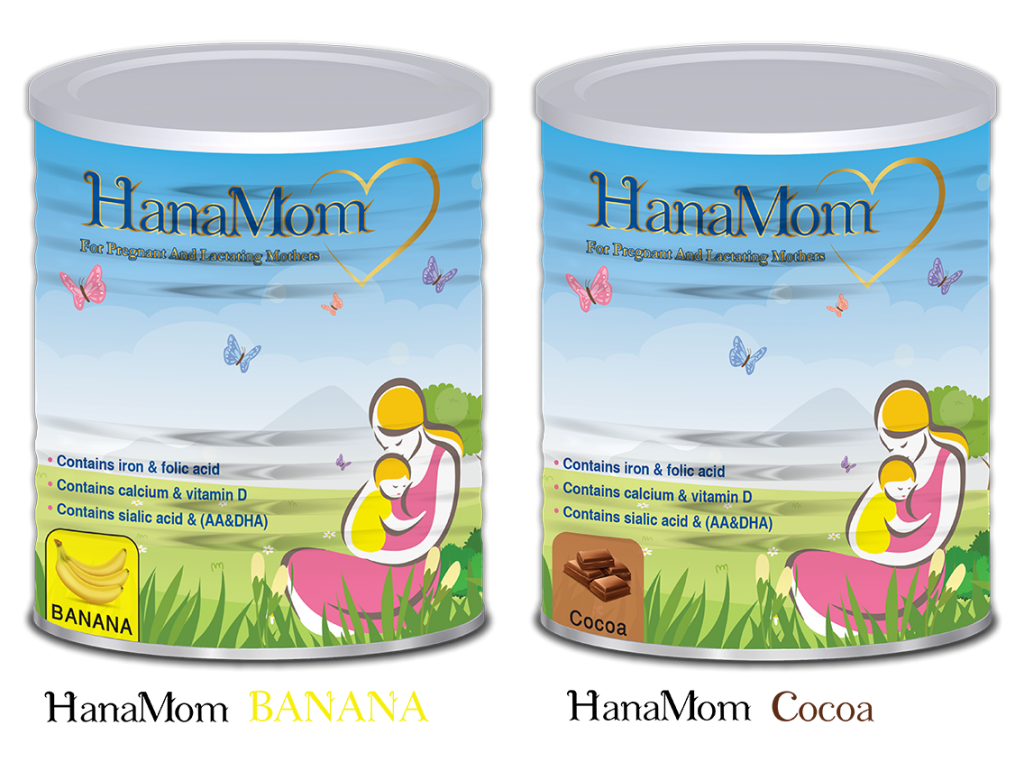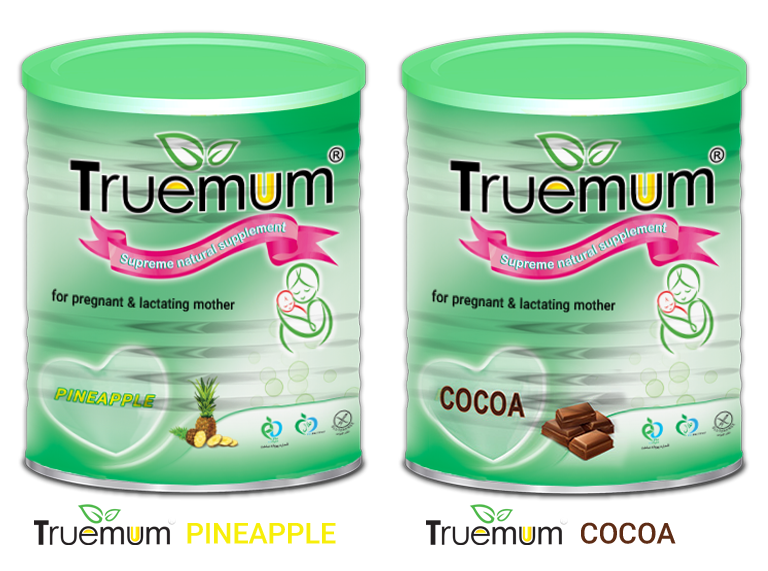
HanaMom is a natural dietary supplement based on cow's milk. This product is low in fat and rich in calcium, folic acid, iron, and vitamins A and D.
During pregnancy and lactation, women need more energy and nutrients, such as vitamins and minerals. The results of various studies indicate that using a daily diet cannot provide all the nutritional needs of women during pregnancy and lactation.

It is necessary to consume a variety of foods from different sources at high cost, to meet the nutritional needs of this era. HanaMom play a vital role in the health of the mother, fetus and infant by meeting all the nutritional needs of this period.
Because of its prebiotics, HanaMom helps to prevent constipation among pregnancy complications.
HanaMom contains AA and DHA which, along with Sialic Acid, have been implicated in formation and development of the fetal nervous system during pregnancy and increase the ability of problem solving and the visual strength of the baby during breastfeeding. The Sialic Acid in the HanaMom also enrich breast milk and improve the baby's nervous system.
Protein :
Optimal amounts of protein must be intake from the diet for optimal fetal growth during pregnancy as well as the production of sufficient milk (needed by the baby). HanaMom contains high biological value proteins that meet the needs of women during pregnancy and lactation.
Sialic acid:
The amount of sialic acid in the mother's blood serum increases due to the regulation of the body's immune activity and metabolism during pregnancy, which results in a successful pregnancy. Sialic acid is also present in breast milk, which in addition to combating pathogens in infant's body, due to its important role in nerve cell structure, is effective for brain development, enhancing learning ability and infant's memory.
Minerals :
The amount of HanaMom minerals is adjusted to meet the needs of the mother well.
Calcium :
Adequate absorption of calcium during pregnancy and lactation helps the skeletal development of the fetus and infant. In addition to providing all the calcium you need, HanaMom contains vitamin D and lactose, which increase calcium absorption. The presence of prebiotics, in addition to helping absorb calcium and other minerals, helps improve the natural flora of normal intestinal flora. Consumption of HanaMom provides the needed calcium during pregnancy and lactation.
Iron :
Due to the importance of this element during pregnancy and lactation, the amount of iron in the product is designed to meet all the body's needs for iron.
Iodine :
Due to the rapid growth of the brain and the need for thyroid hormones during embryonic life, the brain is at risk of iodine deficiency, so HanaMom is enriched with iodine.
The following two figures illustrate the quantities of minerals in two cups of ready-to-use HanaMom solution, two cups of milk, and Dietary Reference Intakes (DRI) for these elements. As shown, the consumption of two glasses of ready-to-use HanaMom solution covers all the need for calcium, zinc, iron, copper and iodine during this period.


Vitamins :
The quantities of vitamins in HanaMom are designed to meet the needs of consumer during this period.


Vitamin B6 :
This vitamin plays an important role in ensuring women's health during pregnancy and lactation. As a catalyst, it is involved in the production of neurotransmitters. Vitamin B6 is very effective in preventing the common nausea during pregnancy.
Vitamin A :
This vitamin is essential for the development of eyes and central nervous system of the fetus and helps to fight infection. 90% of the Dietary Reference Intakes of vitamin A during pregnancy and 50% of the Dietary Reference Intakes of this vitamin is met by consuming of HanaMom.
The following figures illustrate the amount of vitamins in two cups of ready-to-use HanaMom solution, two cups of milk, and Dietary Reference Intakes (DRI) for these elements. As you can see, consuming two glasses of ready-to-use HanaMom solution covers all the needs for water-soluble vitamins (such as group B) as well as part of the need for fat-soluble vitamins during this period.
References
McCance, Robert Alexander, and Elsie May Widdowson. McCance and Widdowson's the Composition of Foods. Royal Society of Chemistry, 2014.
Soldavini, Jessica. "Krause's Food & The Nutrition Care Process." Journal of Nutrition Education and Behavior 51.10 (2019): 1225.